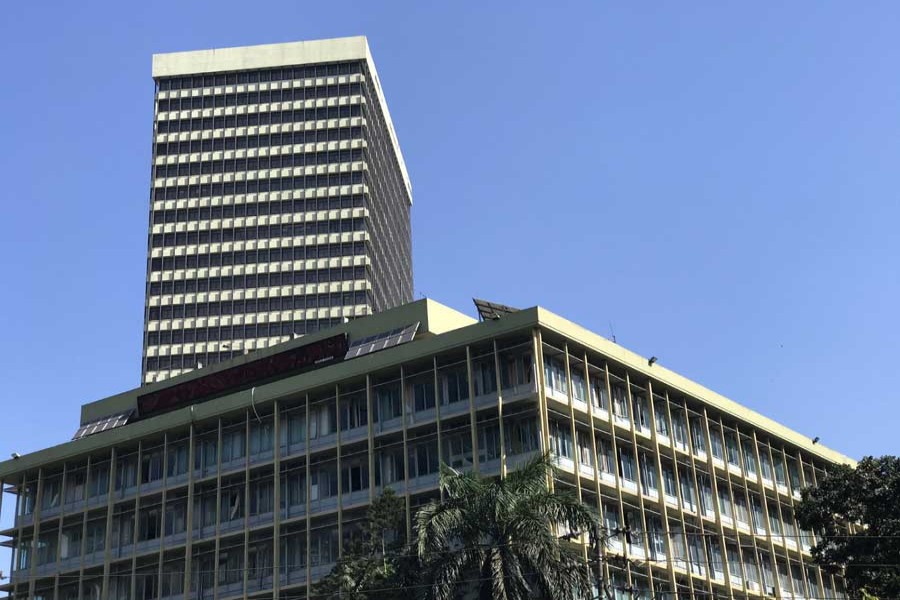The central bank is set to create a large bail-out package for farmers following the signs of collapse in the farm sector. It may be noted that despite repeated insistence from various quarters including the media to expedite farm credit disbursement for quite sometime, there has not been any mentionable improvement, so far. Now that farmers are experiencing a drastic fall in the demand for their produce due to lockdown, it is uncertain how far the package will benefit them, that too depending on how long it takes to implement the plan.
Reports say the central bank has taken an initiative to form a large bailout package for hard-hit farmers who are experiencing hardship from complete collapse of demand for their produce due to the countrywide shutdown. The bailout package is to the tune of Tk 50.0 billion.
Prime Minister Sheikh Hasina on Sunday announced the new stimulus package to provide financial assistance for small and medium farmers in rural areas to boost agricultural production in order to offset the impact of Covid-19, report agencies. "Bangladesh Bank will formulate a new refinancing scheme of Tk 50 billion to pump running capital into the agricultural sector. We'll create this stimulus package only for the agricultural sector," she said. The money from this fund will be disbursed among small and medium farmers, including that of poultry and dairy sector, in rural areas, she added.
The PM simultaneously announced allocation of an increased amount of Tk 90 billion as a subsidy in fertiliser in the next budget as part of government strategy to minimise the impact of the deadly virus on the economy by enhancing yield.
According to reports, the government's plan is to provide farmers in various fields of the farm sector with loans at 5.0 per cent interest, as against the existing interest rate of 9.0 per cent. A fresh refinance scheme will be constituted to implement the package, from which banks will take funds without any interest. In addition, the central bank will give subsidy of 2.0 per cent to banks in order that they can enjoy returns of 5.0 per cent from the lending. The refinance scheme will be composed of BB's own funds. The 2.0 per cent subsidy will be given to banks from the central bank's profits, as per the BB's draft guidelines. The duration of the refinance scheme will be one year, but it could be extended depending on the situation.
The Bangladesh Bank's proposed guideline stipulates that banks will have to give out 50 per cent of the funds from the bailout package for harvesting. The amount banks will disburse from the refinance scheme will not be added to their annual farm loan target.
Observers believe that had the banking industry been made more responsive to instructions of the central bank for quick release of funds since the beginning of the current fiscal, the farmers would have some respite in times of shutdown, despite fall in prices of produce and absence of marketing avenues. It has been found that although paddy (boro) has grown in plenty in most places with the promise of good harvest, fetching fair price may remain a problem, as it always is the case in times of good harvest. As for other farmers, the worst-hit are the onion growers. Scarcity and abnormally high price of onion last year prompted onion growers to go all out last season to gain from the crop. Data of the Department of Agriculture Extension (DAE) say countrywide plantation aimed at meeting almost 90 per cent of the domestic demand of onion. But as ill luck would have it, the onion growers are reeling from the ongoing shutdown, being forced to sell their produce at throwaway prices, or in the absence of sufficient preservation facilities substantial quantities are rotting.
Observers feel that the package that is yet to be made public in details must adequately address two critically vulnerable sub-sectors -- poultry and dairy both of which are severely struck by the shutdown. The worst that has happened to these sectors is that the producers are not in a position to stop production to avert losses due to price slump. They are incurring staggering losses daily as either prices have gone down drastically due to transportation and other related hazards or they are sitting on unsold produce which are literally spoiled for lack of sufficient preservation facilities. Providing immediate relief to these sub-sectors should be a top priority. Observers opine that since these sub-sectors are already facing heavy losses and millions of rural people dependent on them are facing extreme hardship including the risk of job loss, the central bank's bail-out package must address their problems which should come not only in terms of easy loans but also through cash subsidy and fiscal benefits. It has been learnt that the central bank is thinking of waiving interest payment of farm loans for the next six months. If this could be provided in the package, it will surely be a great relief to many.
It is now important that the package is finalised and brought to implementation as early as possible. In a situation such as the current shutdown with all economic activities pressed into a halt, the most that the government can offer is the sustenance of the farm sector in all possible ways.


